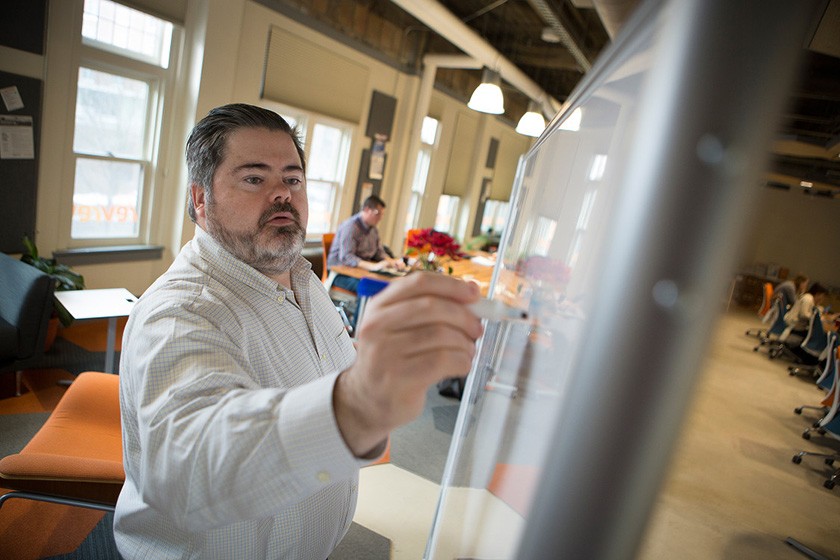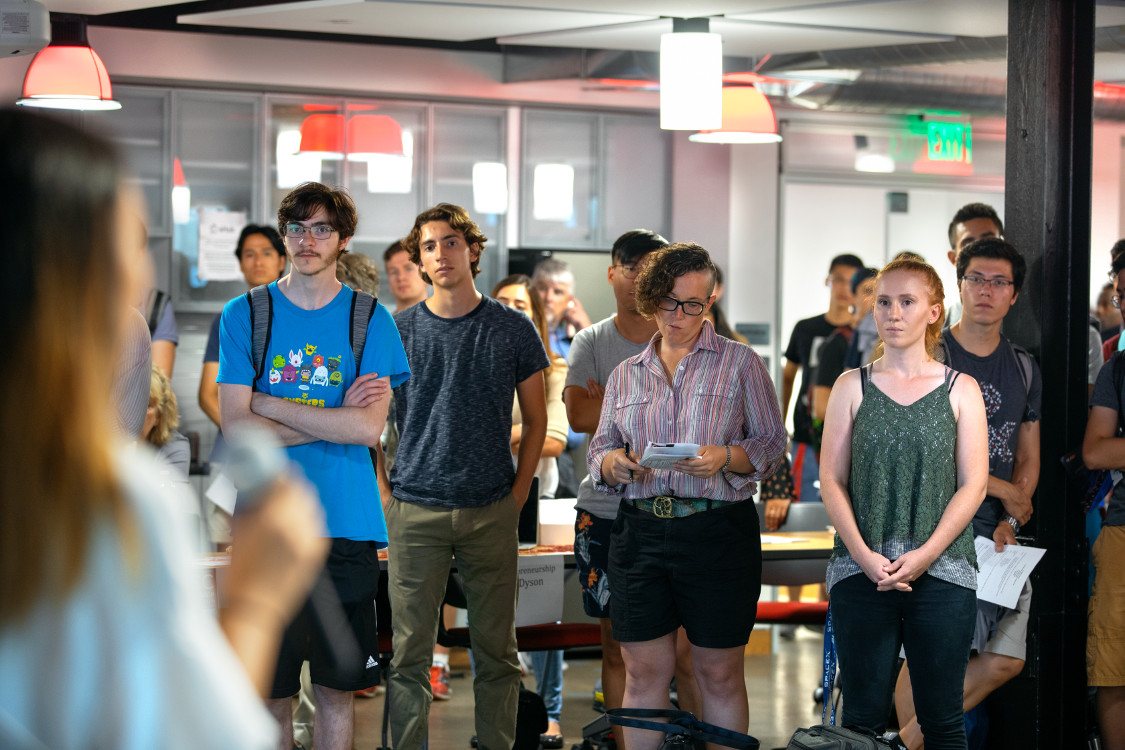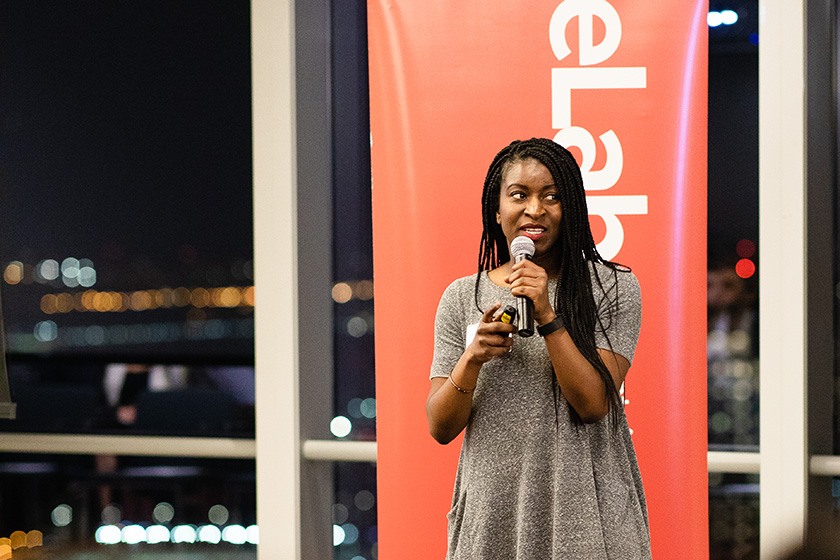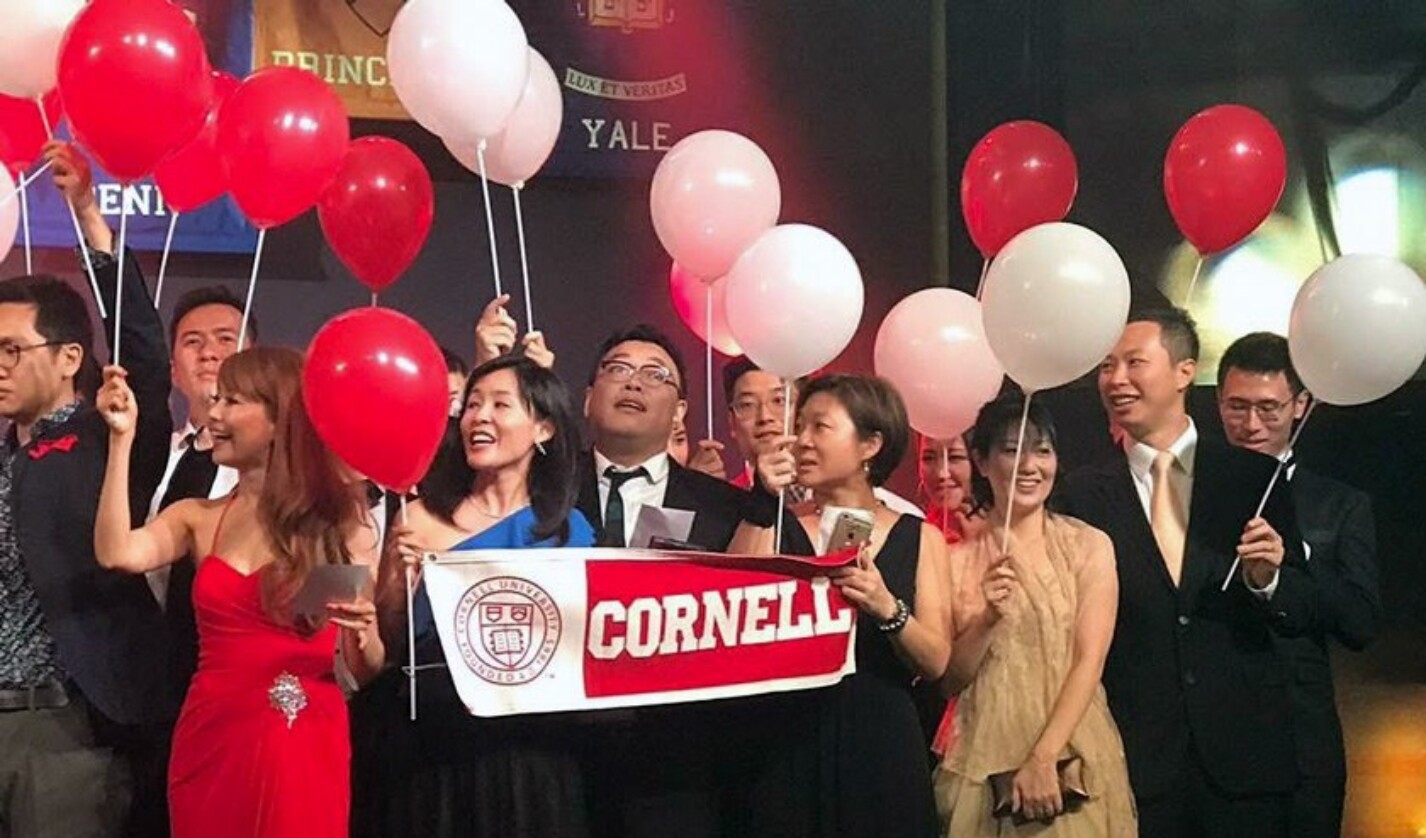To support summer stipends for students pursuing entrepreneurial ventures, Stephen Smith ’91, MBA ’95—a successful entrepreneur—established a new endowment this year.
The Professor Vrinda Kadiyali Student Entrepreneur Fund ties into a new entrepreneurship track for 2-year residential MBA students at the Samuel Curtis Johnson Graduate School of Management, available to first-year students in fall 2019. Named for a professor who inspired Smith during his business education, the stipend will start supporting summer entrepreneurs in 2020. A 1:3 match from the SC Johnson Challenge enhanced Smith’s gift.
An important time for a business student
The summer between first and second years is an important time for any two-year MBA student, says Smith. “That summer is a chance to go deep in a particular area,” he says. For students committed to finance, consulting, or marketing it’s a good opportunity to prove themselves to firms that could potentially hire them, he says.

For students interested in starting a business, that summer is less structured, but no less important. It is a key time to plan, research, collaborate, and explore ideas. A summer of entrepreneurial activity, however, does not pay well, if at all. Plus, there is no guarantee it will result in a viable business.
“An MBA student who expects to do something truly entrepreneurial is probably going to graduate with loans,” says Smith. “And if they don’t have a source of income, that’s going to create a lot of stress and anxiety. It will more than likely prevent them from pursuing their entrepreneurial vision, at least within a few years of graduation.”
Financial support and credibility
Of the 284 members of Johnson’s residential MBA Class of 2019, 272 sought summer internships, and 271 reported getting one. The mean base monthly salary was $8,736.
“It can be hard to give up an internship to pursue an entrepreneurial idea,” says Vrinda Kadiyali, the Nicholas H. Noyes Professor of Management. Her teaching and care for students inspired Smith to name the fund after her.
In lieu of a well-paying and well-connected summer job, Kadiyali says, the summer stipend will provide financial resources for living and work expenses. Given Johnson’s vibrant entrepreneurial community, the stipend will be competitive. Therefore, it will also give credibility to the student’s project.

The Kadiyali Fund stipend will offer a confidence boost during the critical summer period between MBA years, says Tom Schryver ’93, MBA ’02, executive director of the Center for Regional Economic Advancement. As a visiting lecturer of management, he oversees entrepreneurial ventures at Johnson. The opportunity cost of giving up a summer internship at a firm in order to pursue a new business weighs heavily on the minds of an MBA student, he says.
“This gift doesn’t make a business idea better or change the business climate. But it does give students more time—allows more shots on goal, increasing the number of chances a business has to take off.”
The benefits of summer in Ithaca
Stephen Smith spent his own MBA summer, 1994, in Ithaca. He worked at the Engineering Multimedia Research Laboratory, a National Science Foundation-funded center based in what is now Rhodes Hall. It was an unusual summer job for an MBA candidate, and he didn’t make much money. But through it, he learned material that ultimately became the basis of his future business, Naviance.
“It was a chance to really get to know what are now foundational technologies for the web,” says Smith.
That summer, he also met his long-time business partner, Shaun Fanning ’94. During the next few years, they developed Naviance, a software framework that helps middle school and high school students plan for college and career goals. They launched the business in 2001.
Entrepreneurship by its nature will never be a career track as prescriptive as consulting or investment banking, so a one-size-fits-all roadmap of lectures and trainings was not the answer.
To make ends meet soon after Naviance launched, Smith received the Jonas Weil Entrepreneur Fellowship in 2003, 2004, and 2005. Since 1997, this fellowship has helped more than 70 selected Johnson graduates pay off school loans. It allows them to focus time and finances on starting new businesses.
Together with the Jonas Weil Fellowship, the new Professor Vrinda Kadiyali Entrepreneur Fund creates a continuum for Johnson entrepreneurs, says Schryver: “They fit like puzzle pieces together.”

For Smith, having both a summer of exploration and post-graduate fellowships turned into success. Naviance was acquired by Hobsons in 2007. For ten years, he worked at Hobsons, his most recent role being president and chief product officer. Now he is working on a new entrepreneurial venture, together with Fanning. Intellispark is an online platform that helps school districts and community organizations coordinate academic and extracurricular support for students.
“We have about ten pilot schools that have worked with it during the first year,” says Smith.
Expanding entrepreneurial education
Johnson has a robust entrepreneurial ecosystem, says Kyle Johnson MBA ’19. There is a supportive community and a wide range of entrepreneurship programs. But during his first year, he says, “I saw a missed opportunity where we could facilitate this same supportive structure from the moment students arrived on campus.”
Therefore, Johnson dedicated his project as a Park Leadership Fellow to developing the plan for the new two-year entrepreneurship curriculum. To do this, he collaborated with Brian Guo MBA ’19, a student active with Big Red Ventures, Johnson’s student-run venture capital fund. The resulting course of study includes guideposts for the entrepreneurial student. For example, students will have one-on-one meetings with experienced entrepreneurs. There will also be interdisciplinary networking events with colleges across Cornell.

“Entrepreneurship by its nature will never be a career track as prescriptive as consulting or investment banking,” says Johnson. “So a one-size-fits-all roadmap of lectures and trainings was not the answer.”
Coursework includes a Designing New Ventures course in the first year and a course on actualizing a startup in the second. There are also connections to eLab, Cornell’s competitive student business accelerator co-sponsored by the university-wide program Entrepreneurship at Cornell and the Student Agencies Foundation. Johnson Startup Summer, an accelerator for startup teams pursuing their ideas full-time during the summer between their first and second year of their MBA, launched in summer 2019. In 2020, one selected individual or team will receive a boost from the Kadiyali Fund.
A valuable path for MBA students
Schryver would like to see more summer stipends added in the next three to five years to support even more start-ups. In 2019, about seven MBA students spent the summer in business development mode. Many of them took advantage of collaborations across colleges.
“That is the opportunity for MBA students,” he says. “We have $1 billion of research and development right here at Cornell.”

Similarly, Smith hopes the stipend he’s endowed makes financial considerations easier for promising entrepreneurs. “I think it’s important to keep saying that entrepreneurship is a valuable path for MBA students,” he says.
Kadiyali says this is an opportune time to teach and encourage MBA students starting new businesses. “Entrepreneurship is a big force to improve customers’ lives, to enliven capitalism with ‘creative destruction.’ It allows our students to take control of their work lives,” she says. “I am so proud that Steve’s gift will enable Johnson students to explore their entrepreneurial interests.”





